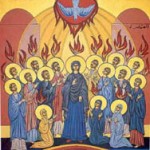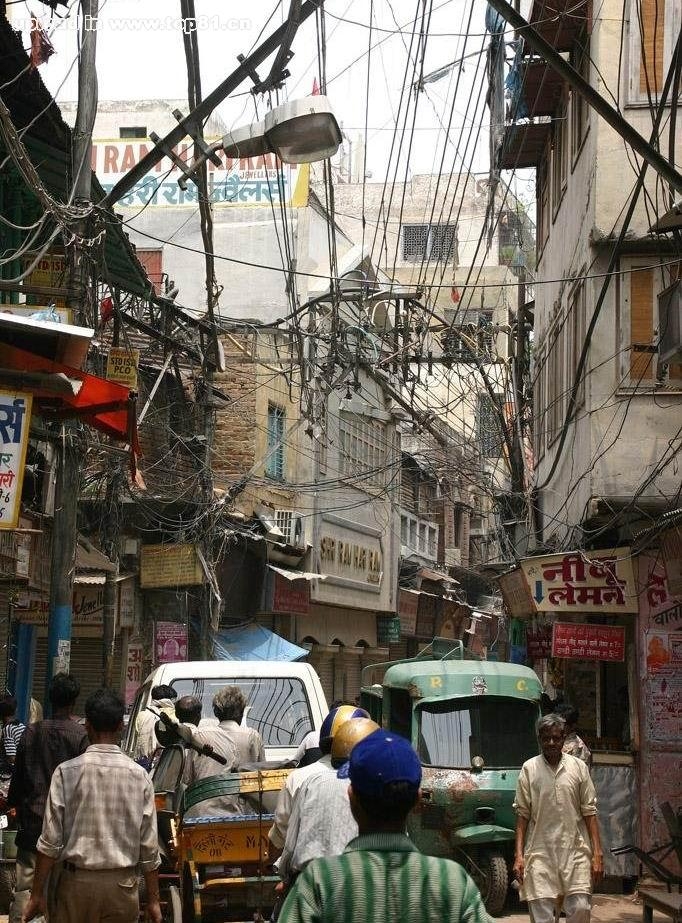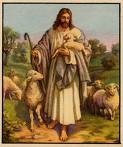The time has come! Luke 14:16-23
 The time has come, right at this very hour, when we must say goodbye to this church building. The time has come to close its doors as a place of divine service; a place of worship. The time has come for us to leave what we know and love. To leave behind what we cherish and remember about this building and all that it stands for.  The foresight of our forbearers, whose hard labour and money built this place of worship, is a testimony to their faith and mission zeal.Â
Life without Christ, life without a church to hear the gospel and receive the sacraments, life without the Lutheran mantle ‘saved by grace alone in Christ alone’ echoing through the fields and sparsely populated town of Gilgandra was unthinkable in their day.  Â
Yet has the time come, when the unthinkable will actually happen, as we close these doors today, do we also close Gilgandra off from the message of the cross…or…has the time come to renew and rebuild upon our parent’s dream; to build upon the foundation they laid in this town; a foundation based on the good news of Jesus Christ, that it is by faith that we are saved, as Paul constantly declares ‘For it is by grace you have been saved, through faith– and this not from yourselves, it is the gift of God– not by works, so that no one can boast.’
The time has come! This is the thread that is woven throughout the bible. God worked in time and in history to bring about the salvation of the whole world. The bible is full of stories about our forbearers in the faith facing up to the fact that the time has come…God’s time to act in history had come on their watch. Noah, without a hint of rain, by faith built an ark until the time had come when God said ‘Go into the ark, you and your whole family, because I am going to destroy the earth by a flood’.  God used his action in time to make Noah the heir of righteousness that comes by faith.
Again the time had come for God to act during Abraham’s watch. By faith he left his family and moved to an unknown land. By faith he placed his son Isaac on the altar, took a knife and was about to sacrifice is son to the Lord, until God’s call “Abraham! Abraham!” “Do not lay a hand on the boy,” God used Abraham to bring his blessing to us all, ‘through your offspring all nations on earth will be blessed, because you have obeyed me.”Â
The list goes on throughout the Old Testament, Isaac, Jacob, Joseph, Moses, King David, the prophets, Isaiah, Jeremiah, Ezekiel, each giving an account of when the time had come; a time when God acted to bring about his plan of salvation for us during their watch.Â
Finally, in the fullness of time, God himself acted to usher in a new era. Yes, there was even a day when God himself was faced with the realization the time has come. Jesus, in the garden of Gethsemane full of anguish of soul said ‘the time has come for the Son of man to be handed over to sinners’. The very Son of God, Jesus Christ, for our salvation, died on the cross at Calvary. His time had come!Â
He hung there on that cross, beaten, smitten and bloodied for you. Jesus went through with his Father’s plan knowing it would cost his life, but in doing so, he took upon his innocent self, our human nature, our sin and curse; he payed the price that was owing on our heads. The damnation meant for you and me he bore. Jesus faced that time for us so that we would not have to. And we are given the pardon, this grace, free, as a gift from God to us, when by faith we believe that Jesus is our righteousness and died ‘for me’. Â
This is the evangelical message, the good news; we are saved by grace alone; a gift of reconciliation with God. (bring out and show a wrapped present) What love in death, what mercy in blood, what amazing love! How can it be that you, my God, shouldst die for me!Â
This is the gospel, the good news your parents wanted to preserve in this town. Jesus is the reason and foundation for them to built this church. They and many others, who have worshipped in this building, took Jesus parable to heart ‘Go out quickly into the streets and alleys of the town and bring in the poor, the crippled, the blind and the lame” ‘Sir,’ the servant said, ‘what you ordered has been done, but there is still room.'”Then the master told his servant, ‘Go out to the roads and country lanes and make them come in, so that my house will be full.’ The present of God lived on in this building, reaching and healing sinners as they ate with God at his feast.
But the time has come! And I ask you again (come down from the pulpit)…… (holding up the present)
has the time come, when the unthinkable will actually happen, as we close these doors today, we close Gilgandra off, close ourselves off from the message of the cross…or…has the time come to take this present from God and rebuild upon our parent’s dream. Rebuild upon the foundation that is already laid, that of Christ and him crucified, at our new church building on the highway? Â
The time has come. God is acting during your watch, during my watch. The cracking and subsequent closure of this building is no ones fault.  I believe it is no accident of fate that God chose this time and place in history, chose this building, chose you and me to make the decision to close this building and move to the highway.
The present cannot remain unopened. If the gospel is not announced to the world, Christ died in vein. It cost God too much to leave this present hidden in old churches.  ‘Go out to the roads and country lanes and make them come in, so that my house will be full.’ God wants you to continue to benefit from his present, the gift of forgiveness through the preaching of the gospel and the administration of his sacraments. You are his holy people, the sheep of his flock and you have forgiveness, life and salvation, all this by grace through faith in Christ Jesus. Â
St Paul urges us, the time has now come ‘Everyone who calls on the name of the Lord will be saved.” How, then, can they call on the one they have not believed in? And how can they believe in the one of whom they have not heard? And how can they hear without someone preaching to them? And how can they preach unless they are sent? As it is written, “How beautiful are the feet of those who bring good news!”Â
Take this gift of God and share with each other, share it with those travelling the highway. Take this gift and proclaim it to those lost in a world of sin, to those thirsty for God and take this gift and pray with me the second verse of ‘Take my life an let it be’
Â
‘Take my hands, and let them move
At the impulse of thy love;
Take my feet, and let them be
Swift and beautiful for thee.
Amen
And the peace which passes all understanding, keep your hearts and minds in Christ Jesus. Amen


 Â
 

